Best Food for Dogue de Bordeaux
The exact origins of the DDB are unclear. It’s believed that the breed is older than the Bullmastiff and the Bulldog. Some have suggested that the Dogue de Bordeaux is related to war dogs of ancient Rome, citing similarities with the Neapolitan Mastiff. They may also be related to another ancient French mastiff breed from the province of Aquitaine. In the past there have been different varieties of the Dogue de Bordeaux, differing in body size, head size, bite, and whether the dogs had a black mask or not. The work the dogs were expected to do could also differ. However, the general type of the dogs was similar to today’s DDB. (For a slightly different view of the DDB’s history, you can read this account).
Quick Look : Top 4 Best Dog Foods for Dogue de Bordeauxs
The Dogue de Bordeaux was exhibited at the first canine exhibition in Paris in 1863. The breed barely missed becoming extinct during the two world wars. It wasn’t until the 1960s that breeders started rebuilding a foundation for the breed. The first breed standard was developed in 1970 and updated in 1995. This standard formed the basis for the AKC standard in 2005. The first Dogue de Bordeaux arrived in the United States in the 1890s but the first documented modern dogs did not arrive until 1959 to help establish the breed in the U.S. There were very few DDB in the U.S. between 1969 and 1980. A Dog World article in 1982 officially introduced the breed to people interested in purebred dogs. At that time there were only 600 Dogue de Bordeaux left in the world, with their numbers falling. In 1989 the movie Turner & Hooch introduced the breed to the American public. Today the DDB’s numbers are climbing. The breed was accepted into the American Kennel Club in 2008. The Dogue de Bordeaux is currently the 63rd most popular breed in the United States.
As a breed, the Dogue de Bordeaux is not for everyone. This is a giant breed dog that weighs – at a minimum – about 100 pounds, and usually considerably more. They drool, they shed, and they eat a lot. The breed can also be noisy when they eat and sleep. You can expect to hear snores and grunts while your dog is sleeping. In addition, DDBs will not be happy living outdoors. This breed is very loyal and affectionate. They want to be close to their people and they need to spend time in the house like smaller dogs. The Dogue de Bordeaux has been bred for centuries to be a guardian. Because of his size and instincts, it’s particularly important for DDBs to be socialized from an early age. Obedience training is also important, including training for good manners. The Dogue de Bordeaux is an intelligent breed but they can be stubborn and willful.
DDBs can be good with children if they are socialized and trained from an early age to know how to behave around kids. Children should also be taught how to behave about dogs. Because of their size, DDBs should always be supervised around children, even when they are loving and tolerant of kids. Even a slight bump can cause an injury to a small child when a dog weighs 100 pounds or more. Some Dogue de Bordeaux can have a high prey drive (the instinct to chase moving objects) and they should not be left alone with small children who often want to run and play. The same is true for other pets in the home. If the DDB is raised with other animals from puppyhood, there are usually minimal problems, but it’s best if you supervise play with other small pets. On the other hand, the Dogue de Bordeaux can be aggressive toward other dogs. This characteristic may only appear after the dog is mature. If you are introducing a new animal to your home, you should do so slowly and carefully to make sure your DDB fully accepts the animal as a family member. A male DDB can be less tolerant of other males. If you are bringing a new pet into your home, you may want to bring a female so your DDB will be more accepting. Early training is essential for your DDB.
The Dogue de Bordeaux is a sensitive breed. They don’t do well with rough training. Positive training methods and patience are important. The DDB also requires regular exercise every day both for physical and mental health. Without enough exercise, your DDB can become bored and destructive in the home. Puppies and young, active dogs do well with a fenced yard so they can get plenty of exercise.
According to the Dogue de Bordeaux Society of America, the purchase price and ownership costs for the DDB are usually higher than for most other breeds.
Disclosure: Please note that this post contains affiliate links, which will direct you to our partner sites. If you purchase the pet foods we recommend through those links, we may earn a small commission – at no extra cost to you.
Quick Look : Top 4 Best Dog Foods for Dogue de Bordeauxs
30% Off on your first Auto-orderon dog food for Black Russian Terriers |
Nutritional Needs
The male Dogue de Bordeaux is 23 ½ to 27 inches at the withers. The female DDB stands 23 to 26 inches at the withers. Males weigh at least 110 pounds; females weigh at least 99 pounds.
While some giant breeds eat less food than you might expect, this isn’t the case with the Dogue de Bordeaux. You can expect a male DDB to go through a 50-lb bag of food in a month. Depending on your dog’s health and recommendations from his breeder, your Dogue de Bordeaux may also require nutritional supplements, medications, or a special diet.
According to the National Research Council of the National Academies, an adult Dogue de Bordeaux weighing 140 pounds requires an average daily caloric intake of 2839 kcal. Dogs that have been spayed/neutered, or that are older, may need slightly fewer calories. Some dogs may need more calories depending on their level of activity and their individual metabolism. Growing puppies consume more calories than adult dogs and so do young adult dogs. A young Dogue de Bordeaux puppy (4-12 months) weighing 70 pounds needs an estimated 1876 kcal per day. You always need to adjust your dog’s food intake based on his activity level and other factors.
As you would expect, DDB puppies grow fast during their first year but it often takes a couple of years for a Dogue de Bordeau to fully mature. This is normal for giant breeds.
Since this is a large/giant breed and it takes a long time for them to mature, we recommend feeding a good food formulated for large breed puppies. These foods typically have fewer calories and calcium levels that are appropriate for large breed growth. The National Research Council recommends a safe upper level of 4.5 grams/1000 kcals for calcium but pet nutritionists usually recommend no more than 3.5 grams of calcium per 1000 kcals (or less) for growth or all life stage foods formulated for large breed puppies. The calcium amount in the food should be between 1-1.3 percent for large breed puppies. A puppy’s skeleton is growing and developing during these months and too much calcium for a large breed puppy often leads to skeletal problems such as hip and elbow dysplasia.
If you feed a puppy food, most breeders recommend feeding this food until your puppy reaches about 90 percent of his adult size. With a giant breed puppy such as the Dogue de Bordeaux, you should not switch to an adult food while the puppy is still growing. Continue to feed a large breed puppy food or an all life stages food until your dog reaches maturity. A giant breed such as the Dogue de Bordeaux needs precise calcium and other mineral content that is not found in maintenance dog foods. You should talk to your breeder about the food they recommend for their puppies since they usually have experience with how their puppies grow and develop.
Feeding Your Dogue de Bordeaux
As with some other large and giant breeds, the Dogue de Bordeaux can be prone to bloat/torsion or GDV (gastric dilatation volvulus). According to one health survey in the breed, 15 percent of DDB mortality was the result of bloat. Concern about bloat affects many feeding decisions for Dogue de Bordeaux. For this reason, it’s wise to feed young puppies (8-12/16 weeks) three to four small meals through the day. When your Dogue de Bordeaux puppy is 12/16 weeks to 6 months, you can move to three feedings per day. Some owners prefer to go on feeding three meals per day with adult dogs, with snacks and treats between meals since this is thought, in some quarters, to reduce the risk of bloat. You do need to avoid feeding one large meal per day. An empty stomach can lead to more air/gas which can result in bloat/torsion.
There has been research and there are various studies online about bloat. We recommend that you look at them if you are considering a Dogue de Bordeaux or another deep-chested breed prone to bloat. One article you should read comes from The Whole-Dog Journal:
The ingredients of a dog’s diet also appear to factor into susceptibility to bloat. A Purdue study examined the diets of over 300 dogs, 106 of whom had bloated. This study found that dogs fed a dry food that included a fat source in the first four ingredients were 170 percent more likely to bloat than dogs who were fed food without fat in the first four ingredients. In addition, the risk of GDV increased 320 percent in dogs fed dry foods that contained citric acid and were moistened before feeding. On the other hand, a rendered meat meal that included bone among the first four ingredients lowered risk by 53 percent.
It should be noted that some vets, owners, and breeders have criticized the Purdue study because the foods seemingly praised for not causing bloat would be very low in quality, containing lower quality ingredients. Dog foods that contain rendered meat meal and bone among the first four ingredients are not usually considered very nutritious. It could be a case where correlation does not imply causation and more research is needed.
Things that are believed to help prevent bloat include splitting meals up into several smaller meals spread throughout the day; encouraging your dog to eat more slowly (for instance, you can buy “slow” bowls for your dog); and monitoring your Dogue de Bordeaux’s exercise before and after meals. Other things that may help include feeding dog foods that contain pre- and probiotics to help with digestion, or adding other supplements. At one time people also recommended moistening dry dog food before feeding so it would expand before it reached your dog’s stomach but this is another practice that is now debated. The fact is that most things related to bloat – its causes and prevention – are only theories at this point.
Many Dogue de Bordeaux are also subject to allergies, including food allergies. Wheat has been cited as a particular trigger for many DDB. You will probably want to avoid dog foods that contain wheat. You may want to avoid foods with grain in general. Or, you can avoid foods with common grains such as corn and wheat. Instead you can feed less common grains such as barley and oats. There are also many good grain free dog foods. Try a couple of foods, with and without grains, and see how your dog does on the foods so you can make your decision.
Dogue de Bordeaux Health Problems
According to the Dogue de Bordeaux Society of America (DDBSA), the DDB has many significant health issues that require commitment from their owners. Cancer, heart disease, orthopedic issues (hips and elbows), and epilepsy are all issues found in the Dogue de Bordeaux. Food and environmental allergies that require special diets and attention from owners are also common. If you are considering becoming a Dogue de Bordeaux owner, pet insurance is recommended.
According to health surveys in the breed, the most common cause of death is cancer (30 percent), with over 1/3 of those cancers being lymphosarcoma. The second leading cause of death in the breed is heart disease (26 percent), especially sub-aortic stenosis. Bloat claimed 15 percent of deaths in the breed. Epilepsy was responsible for another 2 percent of dog deaths.
The Dogue de Bordeaux is also subject to several orthopedic problems. According to evaluations submitted to the Orthopedic Foundation of America (OFA), some 57 percent of DDBs were found to have some degree of hip dysplasia. Some 20 percent of elbow x-rays submitted were dysplastic. Other orthopedic problems found in the breed include osteochondritis dissecans (OCD), panosteitis, and luxating patellas.
You can view the full list of OFA ratings for the Dogue de Bordeaux here.
The Dogue de Bordeaux can also have some eye problems such as cherry eye, entropion, and ectropion.
Hypothyroidism can also affect the Dogue de Bordeaux. Hypothyroidism is a frequent problem in many giant breeds.
We’ve already mentioned that the breed can be prone to allergies. Demodectic mange and other skin problems can also occur.
For a full list of possible health problems found in the Dogue de Bordeaux, we recommend that you read this sheet from the Dogue de Bordeaux Society of America. Please note that these are possible health problems. A single dog will not – could not – have all of these health problems. But these issues have been known to occur in the breed (and in some mastiff-type dogs in general) though some of them may be rare.
The DDBSA recommends that breeders have their dogs tested for the following health issues before breeding:
- Cardiac Evaluation
- Elbow Dysplasia
- Hip Dysplasia
- Shoulders
- Eye Examination by a boarded ACVO Ophthalmologist (Optional)
- Autoimmune thyroiditis (Optional)
- Patellar Luxation (Optional)
We’re not trying to discourage you from getting a Dogue de Bordeaux but this breed does have a wide range of potential health problems. You should have a healthy bank account and a good veterinarian if your DDB manifests some of these health problems.
As with many giant breeds, the Dogue de Bordeaux has a shorter lifespan than most smaller breeds. Their average lifespan is reported to be 8-10 years. However, a study conducted by the DDBSA (“DDBS Causes of Death in the Dogue de Bordeaux Survey Results: Results from 2004-2011”. Dogue de Bordeaux Society of America. October 2011. No longer online.) found that the actual lifespan of DDBs in the survey was only 5-6 years. The oldest dog in the survey was 12 years old.
Ingredients to Avoid and Some to Look For
As with most dogs, when choosing a food for your Dogue de Bordeaux you should look for a food that has good sources of protein and fat.
Ideally you will select a dog food that features two or three meat proteins in the first several ingredients listed. Both whole meats and meat meals are good sources of protein. Whole meats refer to foods such as whole chicken, beef, fish, and lamb. Some people don’t like meat meals as much as whole meats but they are a concentrated form of the meat in which the moisture has been removed. They contain several times as much protein as a whole meat. Meat meals are usually quite acceptable as one of the first ingredients in a good quality dog food. They are used by many good dog food brands.
Many dog foods today, even some of the most expensive and highly touted, use lots of plant proteins such as lentils and peas. These foods often have high protein percentages on the label. When you read the guaranteed analysis it’s important to consider how much of the protein in the food comes from meat and how much comes from plants. Your dog is able to digest meat protein more easily than plant protein. Meat protein is a much more natural source of protein for your dog than plant protein.
Dogs also need good sources of fat. You should look for named fat sources such as chicken fat. Other named fats also provide needed nutrients such as fish oil which can provide omega-3 fatty acid to help keep the skin and coat healthy. Puppies can benefit from DHA which is Docosahexaenoic acid. This is a specific form of omega-3 fatty acid that helps with brain and eye development. Older dogs seem to benefit from medium chain triglycerides which feature medium chain fatty acids (MCFAs). These have been found to help older dogs feel and act younger. They are often made from a combination of coconut oil and other oils.
Like other dogs, some DDBs can get different kinds of cancer. There is no sure-fire way to prevent cancer but many dog lovers try to protect their dogs by feeding a dog food with more natural ingredients to try to keep their dog’s immune system as strong as possible. Many people recommend feeding a food that is free of some of the most common food irritants such as corn, soy, and wheat. These are not the most common dog food allergens – beef, dairy products, and chicken, for example, lead to more food allergies for dogs than corn, soy, and wheat. Avoiding artificial colors, flavors, sweeteners, and preservatives is also suggested as a way to help keep the immune system stronger.
If you want to avoid corn, soy, and wheat in your dog food, your Dogue de Bordeaux may still be able to eat an alternative grain such as barley or oats. Or you can feed a grain free dog food that uses an alternate source of carbs that is low glycemic such as sweet potatoes. You don’t have to feed a dog food with an excessively high percentage of protein but it’s a good idea to keep the carb percentage low to moderate.
If your Dogue de Bordeaux has a food allergy or food sensitivity, you may need to work with your veterinarian to identify the food triggers unless they are very obvious. There are lots of good foods with alternative meat proteins today as well as limited ingredient diets which we will discuss below.
Because the DDB is a giant breed prone to orthopedic problems, it’s particularly important to pay attention to the diet of growing puppies. Giant breed puppies, like the Dogue de Bordeaux, can be subject to “pano,” or panosteitis. Pano most often pops up in puppies between the age of 5 and twelve months. It’s caused by excess growth in the long bones. Diet is believed to be a contributing factor. High protein/high calorie puppy foods can cause puppies to grow too fast. Pano can manifest as “wandering lameness,” causing a puppy to appear lame, off an on. It comes and goes without warning. Puppies can outgrow pano by the time they are about two years old but it’s better for your puppy if you feed a diet that is formulated for large/giant breeds which encourages slow growth. Fast early growth can also contribute to orthopedic problems later in life, such as hip and elbow dysplasia.
Recommended Dog Food For Dogue de Bordeaux
Since the Dogue de Bordeaux can be prone to food allergies, especially to wheat allergies, most of the foods we have selected do not contain corn, wheat, or soy. The puppy foods should meet the calcium requirements for Dogue de Bordeaux puppies. You may have to try a couple of foods to find which one is best for your dog. You should also keep in mind that your dog’s dietary needs can change as he grows and ages so you may have to change foods to suit him.
Keep in mind that the DDB does eat a lot of food. You may want to talk to your dog’s breeder to see which foods they recommend, especially for growing puppies. Your dog’s breeder may also recommend some nutritional supplements for your dog.
Best Dog Foods for Dogue de Bordeaux Adults
Dr. Gary’s Best Breed Holistic Large Breed Dry Dog Food
Dr. Gary’s Best Breed is a small, independent company. Foods are made in small batches using a unique, slow-cooking process at low temperatures that is said to make the carbohydrates easier to digest and ensure optimum absorption of the nutrients. The formulas are made using only EU (European Union)-approved ingredients, which sometimes have to meet a higher standard than USDA ingredients. The foods contain no animal by-products, cheap fillers, any kind of gluten, and no artificial preservatives, flavors, or colors. No corn or wheat. Best Breed uses only ethoxyquin-free sources of fish and chicken raised without antibiotics. (All poultry in the U.S. is raised free of added hormones.) The large breed diet is formulated to promote the health of large breed dogs. It’s especially good for dogs with sensitive digestive systems. The first five ingredients in the large breed formula are: Chicken Meal, Oatmeal, Brown Rice, Dried Beet Pulp, and Chicken Fat [Preserved with Natural Mixed Tocopherols (Vitamin E)]. It has 25 percent crude protein and 13 percent crude fat, with 456 Kcal/cup. This is an all life stage dog food.
 Now Fresh Grain Free Large Breed Adult Recipe
Now Fresh Grain Free Large Breed Adult Recipe
Now Fresh Grain Free Large Breed Adult Recipe is made by Petcurean. You may be more familiar with some of the other product lines from this Canadian company, such as Go!, Spike, or Summit. This food for large dogs is made from 100 percent fresh turkey, salmon, duck and 100 percent fresh omega 3 & 6 oils from coconuts and canola. It has no corn, wheat, or soy, and no other grains, gluten, or beef. It uses no rendered meats, no by-products, and no artificial preservatives.
This formula features New Zealand green mussels and glucosamine and chondroitin for healthy joints which should be beneficial for the Dogue de Bordeaux. It has added L-Carnitine for a healthy heart and to help turn fat into lean muscle. It has taurine for good vision and heart function. And it has added pre- and probiotics for better digestion. The first ingredient is deboned turkey. It contains 363 kcal/cup and has 27 percent crude protein and 13 percent crude fat. These levels should help your Dogue de Bordeaux stay at a good weight. We think this food has some good features for a large breed in terms of bone and joint health and heart health, as well as quality ingredients.
 Wellness Large Breed Complete Health Adult Deboned Chicken & Brown Rice Recipe
Wellness Large Breed Complete Health Adult Deboned Chicken & Brown Rice Recipe
This recipe does include grains, such as brown rice, oatmeal, and barley, but these grains have some health benefits. They are not empty carbs or filler ingredients. Oatmeal and barley provide some good dietary fiber, for example. The first five ingredients in this food are Deboned Chicken, Whitefish, Chicken Meal, Ground Brown Rice, and Oatmeal. The food has 25 percent crude protein, 11 percent crude fat, 5 percent crude fiber, and 11 percent moisture. It also contains added glusamine and chondroitin which many people consider helpful for large breed dogs who can experience joint problems. The food has 363 kcal per cup.
 Fromm Large Breed Adult Gold
Fromm Large Breed Adult Gold
Designed specifically for large dogs over 50 pounds, Fromm Large Breed Adult Gold is one of our favorite dog foods for large dogs. It contains duck, chicken meal, and chicken as the first three ingredients. Chicken cartilage is added for a natural form of glucosamine to keep joints supple which is important for big dogs. The food contains no wheat, corn, or soy that might irritate the digestive system. Fromm Large Breed Adult Gold features moderate protein and fat which may be better for large dogs like the Dogue de Bordeaux. The food is moderate in terms of calories (378 kcal/cup) which helps your large dog stay slim.
We also like the fact that Fromm is a family-owned company in Wisconsin and they make their food in small batches fresh every morning. These are good ingredients from a respected company in a formula that should be good for your large dog.
Best Dog Foods for Dogue de Bordeaux Puppies
Dogue de Bordeaux puppies can usually begin eating a puppy food right after they are weaned or they can eat a good all life stage food. If you have questions about how to feed your puppy, we recommend talking to your puppy’s breeder. They usually have the most experience with raising Dogue de Bordeaux puppies and can guide you.
Puppy foods should have a calcium to phosphorus ratio of about 1.2 parts calcium to 1 part phosphorus. It’s also important that dog and puppy foods do not have an excess of calcium since this can affect bone growth. This is especially true for large breed puppies like the Dogue de Bordeaux. If you are feeding your puppy a food that is properly formulated, you should not add any extra calcium, such as milk, cottage cheese, or other calcium supplements. Doing so can lead to serious health problems such as OCD (osteochondritis dessecans) and other orthopedic problems.
Here are some of the puppy foods we like for Dogue de Bordeaux puppies. Remember that an all life stage food can also be fed, as long as the nutrients are appropriate for your puppy.
 Canidae – Life Stages Large Breed Puppy Duck Meal, Brown Rice & Lentils Formula Dry Dog Food
Canidae – Life Stages Large Breed Puppy Duck Meal, Brown Rice & Lentils Formula Dry Dog Food
Many breeders recommend Canidae to their puppy owners and feed it themselves. The name of this food is a little confusing. Although it says “Life Stages” it is a large breed puppy food. It’s specially designed for puppies that will grow to be over 50 pounds as adults. Duck meal is high in omega-3 fatty acid which is good for reducing joint inflammation. Lentils are a non-grain, gluten free source of carbs. The food is also lower in protein and fat so it helps keep large breed puppies like Dogue de Bordeaux slim and encourage slow growth – which can help prevent joint problems later in life.
As a puppy food, Canidae Life Stages Large Breed Puppy formula also contains high levels of DHA to help with cognitive development. And the food has no corn, wheat, soy, fillers, antibiotics, hormones, artificial flavors, colors, or preservatives. These are all things we look for in a good food for Dogue de Bordeaux puppies.
 Holistic Select – Large & Giant Breed Puppy Health
Holistic Select – Large & Giant Breed Puppy Health
This large breed puppy formula features lamb meal and oatmeal. It includes probiotics, healthy fiber, and digestive enzymes to help your Dogue de Bordeaux puppy digest the food better and absorb more nutrition. Other natural ingredients include chicken and fish meals. The first five ingredients in the food are: Lamb Meal, Ground Brown Rice, Ground White Rice, Chicken Meal, and Dried Beet Pulp. The formula supports muscle and bone development to help your Dogue de Bordeaux puppy enjoy good health now and as an adult. The food also features DHA to help your puppy with brain and eye development. Protein and fat are at lower levels desirable for growing large breed puppies. The food has 23 percent crude protein and 12 percent crude fat. And the calcium to phosphorus ratio is appropriate.
Fromm Gold Large Breed Puppy formula and Precise Holistic puppy formulas for large & giant breed puppies are also recommended.
Best Dog Foods for the Senior Dogue de Bordeaux
Because of their shorter lifespans, you may not think of the Dogue de Bordeaux requiring a senior dog food. But these dogs can start to age at a relatively young age. If you see signs that your DDB is slowing down, sleeping more, and starting to seem “elderly,” even though he’s only 5-6 years old, it may be time to look at senior foods.
It’s very important that senior dogs have good quality protein. Good quality protein is easier to digest and metabolize than poor quality protein. It provides the older dog with more nutrition that he can use. So, plan on giving your older Dogue de Bordeaux the very best food possible with excellent sources of protein.
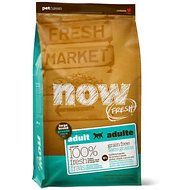
If you prefer a food with more protein, we often recommend Orijen Senior for older dogs.
Best Dog Foods for Dogue de Bordeaux with Skin Problems
If your Dogue de Bordeaux is having skin problems or problems with food allergies, you will probably want to avoid foods that contain known food allergens such as beef, dairy products, chicken, lamb, fish, chicken eggs, corn, wheat, and soy. We’ve been told that wheat is often a trigger for the Dogue de Bordeaux. If your dog is having food allergies – which usually manifest as itching, redness, chewing, and hair loss – you will need to identify the trigger for his allergy. You can try to guess the trigger or work with your veterinarian on a food trial and elimination diet for your dog. You may need to find a novel protein for your dog – a protein that he has not eaten previously. Natural Balance has a selection of limited ingredient diets that can be helpful for dogs with food allergies. You might try giving your dog the rabbit formula, kangaroo formula, venison formula, or bison formula. He should be able to eat a meat protein that he has not eaten previously without having an allergic reaction.
Dick Van Patten’s Natural Balance L.I.D. Limited Ingredient Diets® Potato & Rabbit Dry Dog Formula
This limited ingredient diet food has limited sources of protein and carbs. It’s also grain free and complete and balanced for puppies, adults, and senior dogs. This food should be easy for your Dogue de Bordeaux to digest and it contains no artificial flavors, colors, or preservatives.
 Wild Calling! Xotic Essentials Rabbit Meal Recipe
Wild Calling! Xotic Essentials Rabbit Meal Recipe
Any dog suffering from skin problems or food allergies may benefit from Wild Calling’s Xotic Essentials recipes. Formulas like their rabbit meal recipe use exotic meats that are rare in today’s pet food market so your dog hasn’t eaten them before – less chance of having an allergic reaction. The foods are also highly digestible. Wild Calling also uses what they call LITe (limited ingredient technology). They don’t use any of the ingredients commonly found in most dog foods such as chicken, grain, gluten, egg, yeast, corn, wheat or soy. If your Dogue de Bordeaux has a food allergy, he may benefit from Wild Calling. The foods are formulated for rotational feeding and they offer several Xotic Essentials recipes, such as kangaroo and bison, so your dog doesn’t get over-exposed to one kind of meat protein. This is an All Life Stage food. We think that dogs with skin problems and food allergies can definitely benefit from these recipes.

Best Dog Foods for Dogue de Bordeaux with Sensitive Stomachs
Many dogs are susceptible to food sensitivities that affect their digestion and excretion. If your dog has a sensitive stomach it can be an indication of a food sensitivity, which is different form a food allergy. A dog with a food sensitivity will have gastrointestinal issues such as vomiting or diarrhea. Or it could be something more serious.
A dog with a sensitive stomach can often be helped by feeding the right dog food. Sticking to a limited ingredient diet food with as few ingredients as possible can reduce the chance of your dog having a bad reaction to something in the food.

We don’t know of a dog food that is made to help prevent bloating, but it’s possible that a food for sensitive stomachs – one that is easy to digest – could be beneficial.

If your dog can’t eat these ingredients, you might try one of the Weruva foods or Acana Singles. Weruva also has lots of foods with pumpkin which can sometimes help a dog with stomach issues.
Best Dog Foods for Overweight Dogue de Bordeaux
You can help your Dogue de Bordeaux lose weight by cutting back on his portions and encouraging him to get more exercise.
If your Dogue de Bordeaux needs to lose more than a few pounds, however, you may need to consider a weight control dog food.
We do not recommend a weight control dog food for a puppy or a very old dog. These foods generally have fewer calories and may have some other differences in nutrients that make them inappropriate for growing puppies or older dogs who need special nutrition.

If your dog needs to lose weight, you should proceed slowly. No crash dieting. You should aim for your dog to lose no more than 3 to 5 percent of his body weight per month or about one percent each week.
Conclusion
Dogue de Bordeaux are a large, powerful, intelligent, loyal, affectionate breed with a natural instinct for guarding. They may appear intimidating but they are actually a gentle, calm, patient companion. Yes, there is drooling and snoring but these dogs require minimal grooming and only moderate exercise. You do need to be aware of the potential health problems with the breed but if you are committed to loving and caring for a Dogue de Bordeaux, this could be the dogue for you.
Below is a list of Products reviewed in this article
-
Wellness Large Breed Complete Health Adult Deboned Chicken & Brown Rice Recipe
-
Canidae Life Stages Large Breed Puppy Duck Meal, Brown Rice & Lentils Formula Dry Dog Food
- Orijen Senior
-
Dick Van Patten’s Natural Balance L.I.D. Limited Ingredient Diets® Potato & Rabbit Dry Dog Formula
- Zignature
- Wellness Simple
- Natural Balance L.I.D. Limited Ingredient Diets Sweet Potato & Fish Formula Dry Dog Food
- Fromm Gold Weight Management
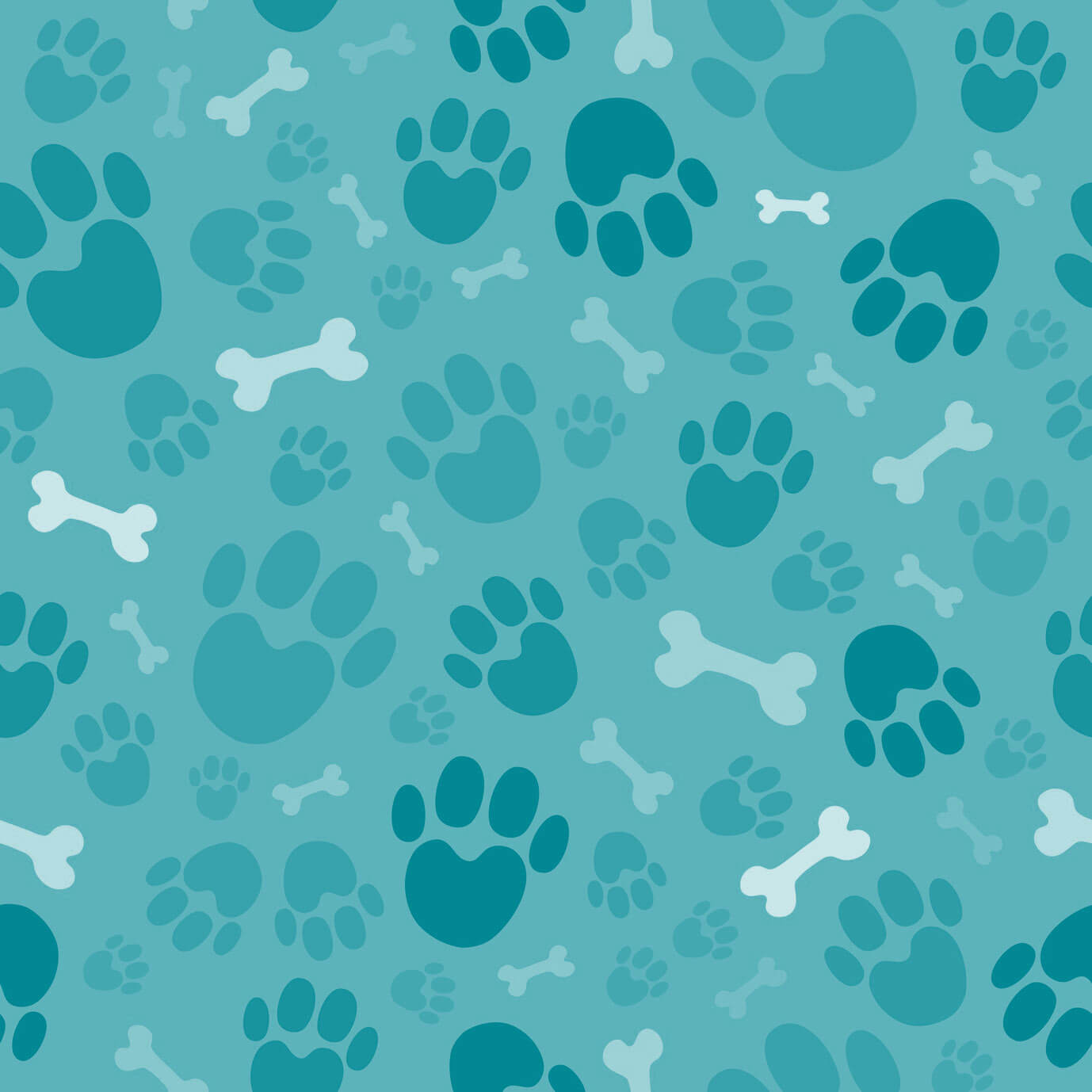







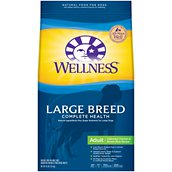

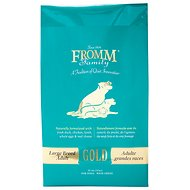
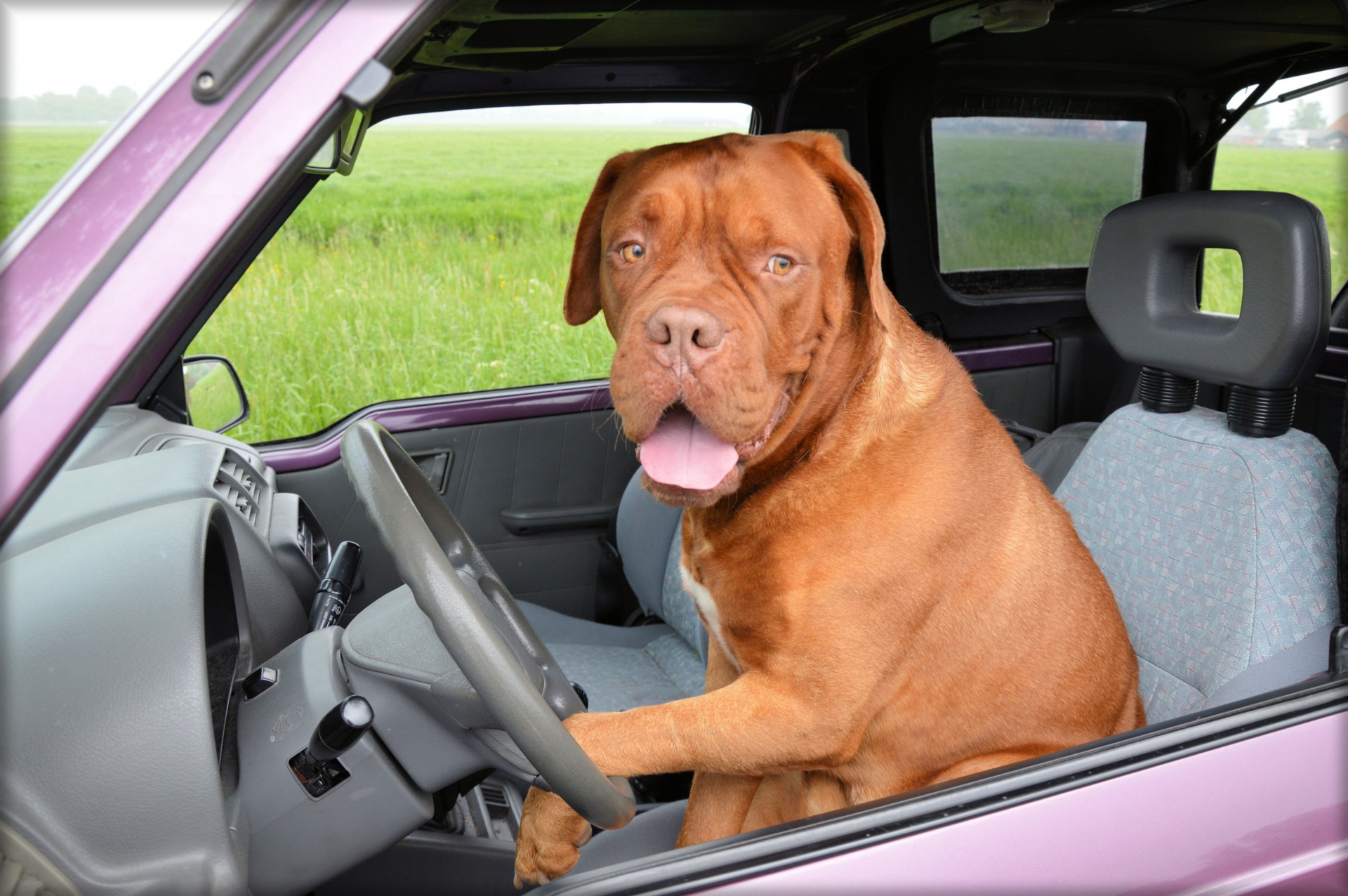

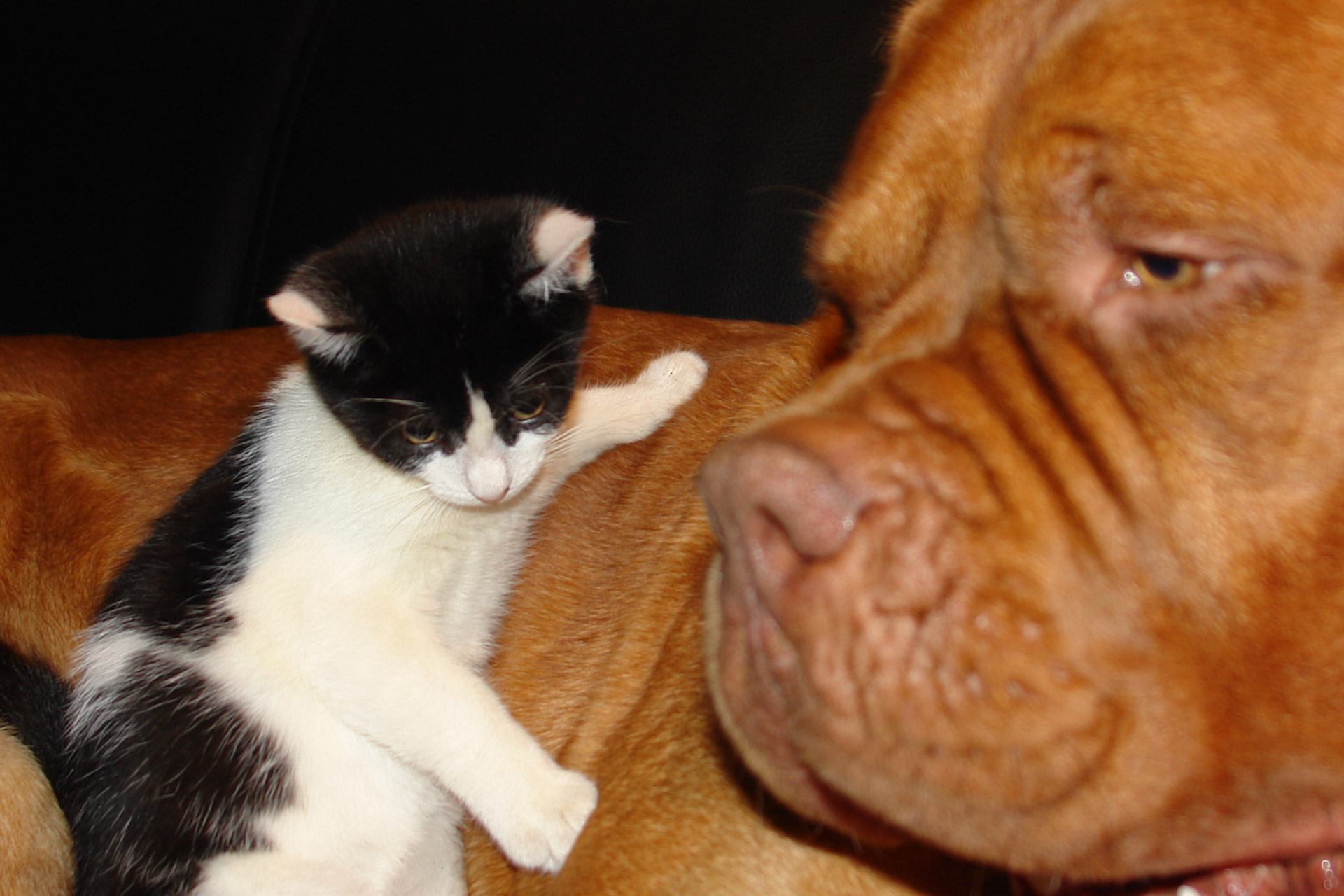


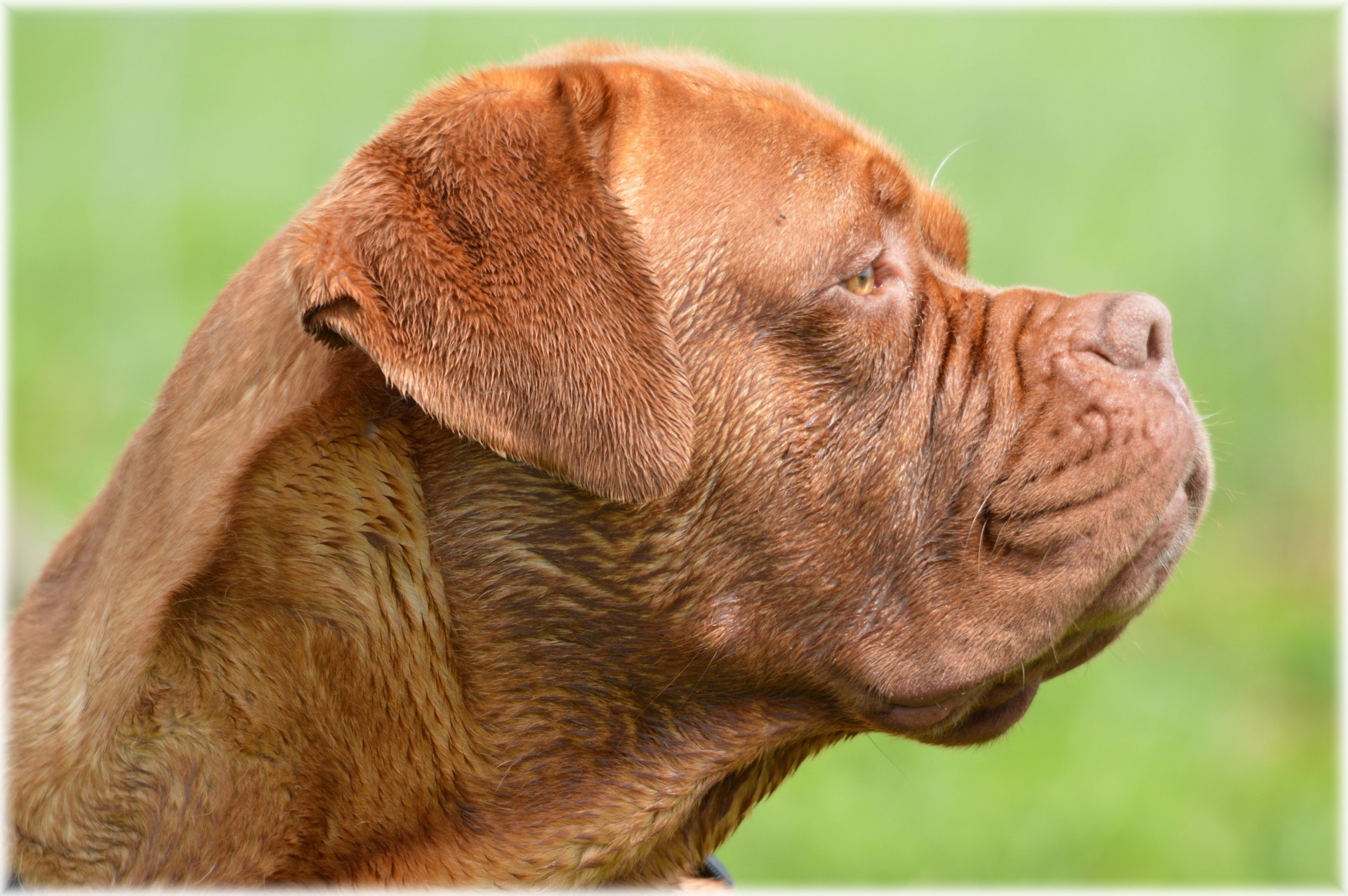
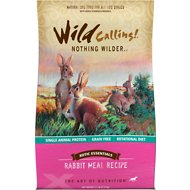





So concerned to get my 8 month ddb diet correct . Dry food raw meat both . HEL